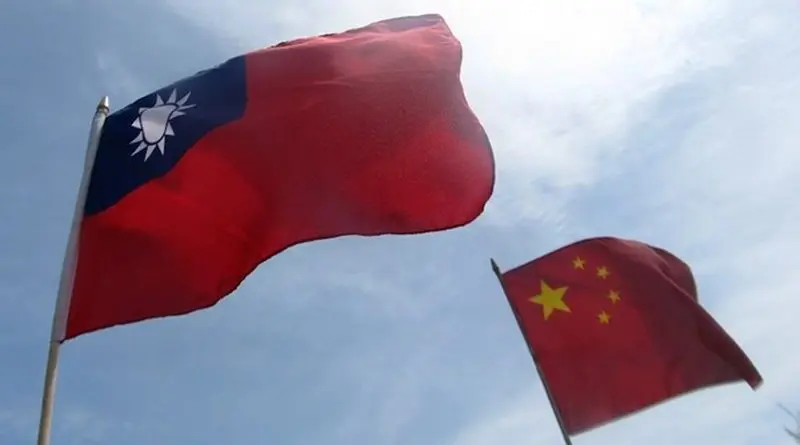Ukraine As Example For Future China-Taiwan Relations – OpEd
The potential conflict between Taiwan and China is a long-standing and complex issue with significant regional and global stability implications. China’s growing aggressive military actions increased the tension between the countries and strategic instability for global peace and economic growth. A similar sentiment prevailed before the Russian invasion of Ukraine with heightened tensions.
However, after Russia invaded Ukraine on February 24, 2022, the United States and the West took stern actions to help Ukraine against its invader- Russia, and the follow-up actions significantly isolated Russia in the international arena.
It is no secret that- the Ukraine war created new strategic alliances assisting their strategic partners to defeat adversaries as a measure of counter-balance. In this context, Ukraine received sophisticated lethal weapons from the West to use against Russia, primarily within the territory of Ukraine. As the war progressed without sign of end, Ukraine expanded its war efforts beyond its territory. It continues to attack strategic targets in Russia by adding another dimension to the spectrum of war. This kind of action was only possible due to the external support Ukraine received to liberate areas under Russian control.
The strategy used by the West against Russia in support of Ukraine not only bears fruit in some areas but could also be a precursor for future warfighting between the nations. As the United States government says- “material support as long as Ukraine requires in order to defend its sovereign territory” sends a powerful message. Material support is one of the best strategies to assist Ukraine in fighting its war with its men and women without having the United States troops on the ground while depleting Russian military might through Ukraine.
In the present context, implementing even a conditional cessation of hostilities is impossible due to complex situations and the nature of the involvement of other powerful nations. With the grim outlook, negotiated solutions can only be possible in a case to prevent the next world war. As history shows, it is easy to ignite a conflict and extremely difficult to extricate with own time and space. In this conflict, according to unofficial reports, hundreds and thousands of men and women have been killed and wounded in actions with unimaginable destruction and human suffering.
Knowing what to expect and the degree of uncertainty, Taiwan must take every possible step to avoid the war with China due to the following reasons:
Humanitarian Concerns: The war would result in a significant loss of lives and human suffering for both sides. It is crucial to prioritize peaceful means of resolving long-standing disputes to protect the well-being of the people of both countries. Taiwan must learn a lesson from the Ukraine war and make the best possible judgment to build peaceful coexistence with China as a neighbor and preserve its traditional way of life. On the other hand, China must use caution and avoid its military strategy- an invasion of Taiwan while maintaining a strategic advantage through soft power- diplomacy.
Economic Interdependence: Taiwan and China both have strong economic ties. Escalation to war could disrupt their economic relationships, causing severe economic hardships for both nations and potentially triggering a global economic crisis.
International support: Many countries do not want another conflict in the region. However, when the situation changes, the response may vary based on one’s preferences. As evident shows in Ukraine, Taiwan will have to use its resources to fight the war with its men and women. It is unlikely to see any alliance to confront China militarily to support Taiwan. It is also unlikely to have unconditional logistic backing to shore up Taiwan’s warfighting capabilities without direct conflict with China.
As a land-locked country, Ukraine has an advantage in managing logistical requirements and uninterrupted supplies by land through member nations of the North Atlantic Treaty Organization. In the case of Taiwan, it is an entirely different scenario, where vulnerability plays a significant hurdle in getting external logistical backing. In this scenario, Taiwan’s best chance for maintaining its de facto independence is diplomacy with international support.
Humanitarian and Global Responsibility: Taiwan must avoid actions that could lead to a regional or global conflict. Promoting coexistence aligns with the principles of international laws and diplomacy. Taiwan is responsible for its citizens by avoiding actions partly influenced by other countries. Taiwan needs to remember that once the war is ignited, it has to fight with its men and women in their territory. Look no further than Ukraine; whatever material support it gets will never replace the lost lives, time, and suffering. Financial aid may help to rebuild the infrastructure but not the nation. Finally, no permanent friends or enemies exist but strategic partnerships based on their agendas. Lastly, no one should pay the price for fulfilling someone else’s agenda in the name of liberation.
As a responsible nation with peace-loving people, Taiwan needs to avoid confrontational acts and prevent China from justifying the reason for its invasion. Given the circumstances and the nature of geography, Taiwan will face uphill challenges to sustain its war efforts against China for a considerable period. In this scenario, Taiwan needs to be extremely careful with its dealings with other countries while using strategic ambiguity to the fullest extent. Taiwan must act independently and avoid making decisions based on influential actions by other countries. If not, someone will write in the annals of war that Taiwan failed to use Strategic Ambiguity- deterrence in its favor. Without peace in the region, the ultimate result will be a new world order with unimaginable human suffering and losses. Finally, every nation is responsible for making friends, not enemies; “Hatred does not cease by hatred, but only by love.”

